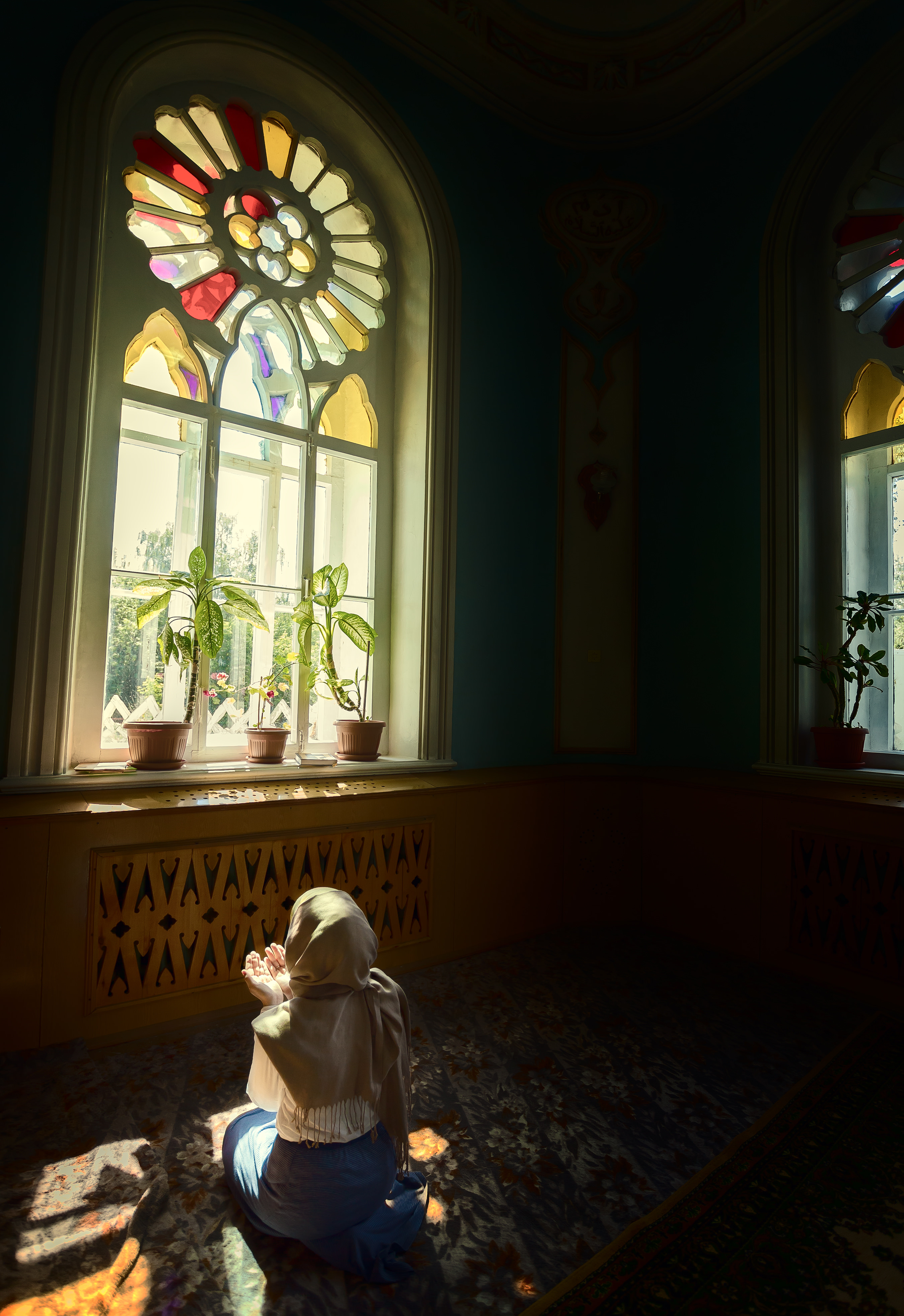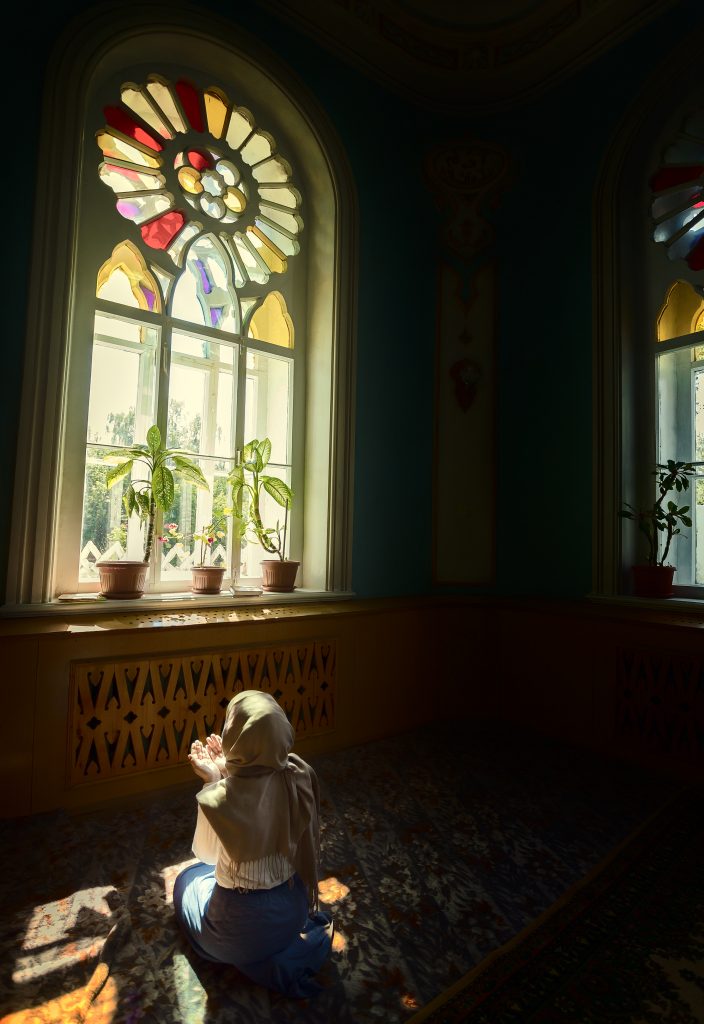Ramadan
Prepare Your Heart for Ramadan | Yasmin Mogahed
Published
By
Guests
Lecture by Yasmin Mogahed | Hosted by Br. Abdullah Syed | Transcribed by Sameera
[The transcript includes slight modifications for the sake of readability and clarity.]
Link to the presentation (Video will be added once it becomes available), www.ramadanprep.com
Keep supporting MuslimMatters for the sake of Allah
Alhamdulillah, we're at over 850 supporters. Help us get to 900 supporters this month. All it takes is a small gift from a reader like you to keep us going, for just $2 / month.
The Prophet (SAW) has taught us the best of deeds are those that done consistently, even if they are small. Click here to support MuslimMatters with a monthly donation of $2 per month. Set it and collect blessings from Allah (swt) for the khayr you're supporting without thinking about it.
Ramadan Prep Lectures, Sponsored by
Bayyinah Institute | QuranWeekly | MuslimMatters
What I want to talk about today is something that we are about to enter into. Before I talk about the gift Allah 
Purpose
In order to understand the purpose of the creation of anything, you need to go back to the creator. If you look at something as simple as a paperclip, you need to ask why it was created and in order to answer that question, you have to go back to the creator.
We are also a created thing, and in order to understand the purpose of why we were created, we have to go back to our Creator. Our Creator answers this question in the Qurʾān and says simply and clearly that Allah has not created jinn and human beings for any other purpose except to fulfill ‘ubūdiyyah to Allah 
Barriers
If you study the Qur’ān and Sunnah, you will see there are two barriers that prevent us from fulfilling the ultimate purpose of our creation. One is an internal barrier and the other is an external barrier. We have been taught since we were young that we have an enemy outside of ourselves, the Shayṭān, who wants to keep us from our ultimate purpose. Shayṭān has vowed when he was taken out of Jannah to do everything in his power. He said, “I will assault them on Your straight path.” Notice that Shayṭān’s assault comes on the straight path. He doesn’t need to work as hard on those who are not on the straight path. Those people who are trying and struggling on the straight path, Shayṭān says he is going to come at them from every single direction. We know that Shayṭān is an enemy to us. Shayṭān is a barrier that keeps us away from fulfilling the purpose of ‘ubūdiyyah to Allah 
There is also an internal enemy of the nafs, our own selves. Within every single one of us is an internal enemy, which is our lower inclination. Where does Ramadan fit in? Ramadan is a gift of Allah 
Allah 


Many people ask: During Ramadan, the shayāṭīn are chained, so why is it that I still sin? Why don’t we all become angels? This means that it is your own self. If there are things you cannot give up in Ramadan, then know that it is your own self and your own attachment to the sin. You know that you are coming up against your own self. Allah 

In order for us to be really successful in overcoming the nafs, we have to undergo a process of tazkiya (purification). Zakāh and tazkiya share the same root. Tazkiya is the purification of the nafs, and zakāh is the purification of money. We purify our money by giving a portion of it. In order to remove the internal barrier to our purpose of worshipping Allah, we have to undergo a process of tazkiya. This is how you get the nafs under control.
Allah 

Taqwa
How can we actually attain it? When we look at Ramadan and what Allah tells us about the month of Ramadan, we see that there are two main themes. The first main theme is the theme of taqwa. Allah tells us about fasting and why He has prescribed fasting. Many times people give the reason why they fast as being because it allows us to feel what the poor people do. While this is a noble consequence of fasting, it is not why Allah has commanded fasting. Allah 
You are shielding yourself from the evil of your own nafs. You are protecting and shielding yourself from Shayṭān. You are protecting and shielding yourself from the wrath, distance and displeasure of Allah. If we use this definition and go back to the ayah, Allah is saying that He prescribed fasting upon us in order that we learn to shield and protect ourselves from Shayṭān, from our own nafs, and ultimately from the wrath and displeasure and distance from Allah.
Let’s think about some ways why this may be the case. Imagine for a moment that you are in Ramadan and you have kept yourself from eating and drinking and intimacy with your own spouse – things which are normally ḥalāl. During the day of Ramadan, you hold yourself back from things which are normally ḥalāl for the sake of Allah 
Focus
Another way to understand the concept of fasting is that when you take the focus away (you are not eating or drinking during the day), you notice how much of our focus during the day is on what we are cooking and eating for breakfast, what we are cooking and eating for lunch, and what we are cooking and eating for dinner and who we are going to share these meals with. So much of our lives revolve around eating! We live in a culture that lives to eat.
The idea here is that when Ramadan comes around, it takes the focus away from eating and drinking. You can now take that focus and point it towards internal things. Eating, drinking, and intimacy are the physical fulfillments and pleasures. When you take that away, you have given yourself the ability to focus on the spiritual health and the internal relationship with Allah and building your heart. You are holding back from the nafs and withholding from the physical self in order to feed the spiritual self and the heart. You are starting the nafs and feeding the heart.
Heart & Soul
This is extremely important because it is our heart and soul that we are going to hold onto and which we will return to Allah 
Allah tells us this on the tongue of Ibrāhīm 

Ramadan gives you the opportunity to feed the heart. SubḥānAllāh, this is only an example. We are supposed to be taking the focus away from food and away from the physical realm and focus on the spiritual realm, but ironically what we end up doing is the exact opposite! We spend so much of our focus on what we are eating for ifṭār and who we are spending ifṭār with. There is much reward in feeding a fasting person, but I think our focus has gotten off-center, and we use our time and focus when we are supposed to be feeding the heart and instead focus on what we are going to feed the stomach when maghrib time comes. SubḥānAllāh this is the opposite of what the intent really is of moving away from that focus.
Taming the Nafs
When you are trying to control the nafs and feed the heart, you need to think of the nafs as a wild animal that we all have inside of us. You need to break the nafs like you break a horse. When you try to break a horse, you do two things.
1) Reduce intake. The horse is eating and drinking less.
2) Overburden the horse.
In Ramadan Allah 
Allah has given us this gift to help us take on this internal enemy. We can seek protection from Shayṭān with Allah, but the nafs is one of the really difficult things to break.
Practical Steps: How to Benefit Most from Ramadan
I want to leave you with practical steps on how I think we can inshā’Allāh benefit most from Ramadan.
1. Be careful not to make fasting just about hunger and thirst.
The Prophet 


We have to understand that Ramadan and fasting is not simply about just going hungry and thirsty. Ramadan is about trying to make ourselves a better person and striving to change ourselves internally. Allah told us the result of this. Allah 
2. Don’t let Ramadan be a ritualistic holiday.
Many times we take Ramadan as a holiday. Ramadan is not just a ritualistic holiday. It is a time to come back to Allah 



For example, we focus on the reading of the Qurʾān and the goal is to just finish reading the Qurʾān in Ramadan. Although there is reward for every letter that you read in the Qurʾān, the purpose of the Qurʾān was not just to be read without meaning. The purpose of the Qurʾān was to transform our hearts. If the Qurʾān is not transforming or changing us, then it is not getting any farther than our throats, and we are reading it and it is not having any effect on us. It is extremely important for us to not just read the Qurʾān quickly to get through it, but read and reflect on it and it will affect and change us, which is the purpose why the Qurʾān was revealed.
The Qurʾān was not revealed in one year. It was revealed over many years and the reason for this is that the Prophet 


3. Remember to set time aside for you and Allah alone
It is so easy to get caught up in the rituals of Ramadan. We have our activities during the day – going to work, going to school, preparing for ifṭār. Ifṭār comes and we run from one place to another.
A lot of times we lose the opportunity to be alone with Allah 

A lot of times we lose the opportunity to be alone with Allah. I really want to emphasize and tell you how important it is to minimize distractions and have that time alone with Allah. The best time is the last third of the night. We are told in a ḥadīth qudsi, Allah descends down to the lowest heaven, and this is when Allah is closest to His ‘abd and calls out, “Who is calling on Me I can answer his call? Who is seeking forgiveness from Me so I can forgive him?” This is the time when we are nearest to Allah 
Set out time just before fajr to be alone with Allah, make du‘ā’, read Qurʾān and reflect on it and pray during that time. This is the time we wake up for suḥūr and feed our bodies. We wake up to feed our bodies but won’t wake up to feed our hearts and souls. This is ironic because our bodies will not last. It is only our hearts and souls that will return to Allah 

Advice for Parents
Another advice I want to give you: when you are teaching your children about fasting and learning the Qurʾān, do not give them monetary rewards for doing this. Don’t pay your children to fast and memorize Qurʾān. It is very important that we teach our children to look forward to the reward with Allah 
Teach our children to look forward to the reward from Allah 


Psychological research and motivation has shown that when you have an external reward, although the behavior might temporarily increase, the motivation for the behavior is linked to the external reward – the money, the gifts. As soon as you remove the external reward (money or gift), the person no longer wants to do the action and has little motivation to continue the act. This is really dangerous with an act of ‘ibādah. We don’t want to teach our children that the only reason they were fasting is because they were getting paid.
We ask Allah 
The last advice I want to give: clean out the cup of the heart. The heart is like a vessel. A lot of times we enter Ramadan and leave Ramadan completely unchanged. We go into Ramadan and increase our ‘ibādah for a while and leave Ramadan and we are exactly how we were before Ramadan. The heart is a cup. If a cup is already dirty and you are trying to fill it with the most beautiful thing like honey and it is covered in dirt, then the honey will be mixed with the dirt, and it will not be pure.
We need to use this opportunity to clean our hearts of the stains of our own sins. We all commit sins. There may be certain sins which we are addicted to and unable to leave. Ramadan is the time to go back to Allah 


I ask Allah 
I ask you to keep me and my family in your du‘ā’s. I am inshā’Allāh coming out with a book that is a collection of my writing called Reclaim Your Heart.
Keep supporting MuslimMatters for the sake of Allah
Alhamdulillah, we're at over 850 supporters. Help us get to 900 supporters this month. All it takes is a small gift from a reader like you to keep us going, for just $2 / month.
The Prophet (SAW) has taught us the best of deeds are those that done consistently, even if they are small. Click here to support MuslimMatters with a monthly donation of $2 per month. Set it and collect blessings from Allah (swt) for the khayr you're supporting without thinking about it.

Courting The Crosswinds: The Tragedy Of Saif Al-Islam Qaddafi

Parenting Through Times Of Fear, Injustice, And Resistance: A Trauma-Informed, Faith-Centered Guide

Recognizing Allah’s Mercy For What It Is: Reclaiming Agency Through Ramadan

[Podcast] Dropping the Spiritual Baggage: Overcoming Malice Before Ramadan | Ustadh Justin Parrott

Far Away [Part 8] – Refugees At The Gate

[Podcast] Should Muslims Ally with Conservatives or Progressives? | Imam Dawud Walid

How to Make this Ramadan Epic | Shaykh Muhammad Alshareef

[Podcast] The Parts of Being an Imam They Don’t Warn You About | Sh Mohammad Elshinawy

Keeping The Faith After Loss: How To Save A Grieving Heart

[Podcast] Guardians of the Tradition: Muslim Women & Islamic Education | Anse Tamara Gray

[Podcast] Guardians of the Tradition: Muslim Women & Islamic Education | Anse Tamara Gray

How to Make this Ramadan Epic | Shaykh Muhammad Alshareef

[Dhul Hijjah Series] Calling Upon the Divine: The Art of Du’a (Part 1)

IOK Ramadan 2025: Four Steps | Sh Zaid Khan

IOK Ramadan 2025: Do Your Best | Sh Zaid Khan
Trending
-
#Current Affairs1 month ago
An Iqbalian Critique Of Muslim Politics Of Power: What Allamah Muhammad Iqbal’s Writings Teach Us About Political Change
-
#Current Affairs4 weeks ago
[Podcast] Should Muslims Ally with Conservatives or Progressives? | Imam Dawud Walid
-
#Current Affairs1 month ago
Op-Ed: From Pakistan To Gaza – Why Senator Mushtaq Ahmad Khan Terrifies Power And Zionism
-
#Culture1 month ago
The Muslim Book Awards 2025 Winners













